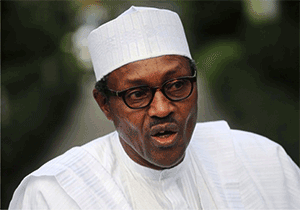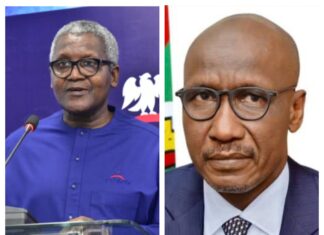Nigeria elected Muhammadu Buhari of the All Progressives Congress (APC) as the next President despite power of incumbency of President Goodluck Jonathan of the Peoples Democratic Party (PDP).
Contrary to general apprehension the announcement of the winner of the ballot on Tuesday, March 31 was received with wild jubilation across most parts of the country, facilitated by the quick concession of Jonathan.
The election, regarded by many as a new dawn for the country, comes amid growing economic challenges, as global oil prices remain low, foreign reserves continue to dip, naira keeps depreciating, and other economic indicators linger in red.
The obvious question, which perhaps only time can answer, is how much positive change Buhari’s mandate can really bring to Nigerians and the economy.
Near term positive impact
Financial analysts took a hard look at the implications of Buhari’s victory and concluded that both in the near and long term, it presents a mixed bag of positive and negative fortunes for the financial markets and the economy as a whole.
While pointing out underlying asset quality risks and multiple regulatory headwinds that have weakened the investment case for Nigerian banks over the past few years, analysts at Lagos based Renaissance Capital (RenCap) said given the impressive valuations of return on equities, fleeing investors are waiting for three things to justify re-entry.
The analysts, led by Adesoji Solanke, said in a research note emailed to TheNiche that a recovery in oil prices, fairer valuation of the naira (another 10 per cent move to N220/$1), and some level of comfort in the political environment may provide fillip for banks’ share prices near term.
They believe that near term, the monetary policy environment will likely remain tight, but “we have no reason to think a Buhari win puts the CBN (Central Bank of Nigeria) leadership at risk.”
According to them, what will likely happen is improved collaboration between the monetary and fiscal authorities (tackling corruption, reducing wastage, reducing revenue leakages, et cetera), which could lead to a quicker easing of tight regulations, such as the CRR, on banks.
On oil and gas in relation to banks’ loans to the sector, the analysts said Buhari’s victory has significant, potentially negative near term impact for banks in view of tension in the South South banks fund asset acquisitions by indigenous companies.
“What does this mean for social tensions in the South South region where Nigerian banks have been funding asset acquisitions by indigenous companies? This is risk to c.20 per cent of the sector’s loan book, on our estimates, which is in upstream oil and gas.
“Should the oil companies have to deal with significant and extensive shocks to their production volumes, following the marked decline in oil prices, we think the risk to cash flows could be too significant to quantify, thus leading to a noticeable rise in nonperforming loans (NPLs) near term for the banks.
“That said, Rencap’s oil and gas analysts do not see this risk as high, particularly if the president concedes victory and appeals to the militants for calm – which has happened.
“Furthermore, we think the increased participation of indigenous companies in the upstream sector implies that there is deeper integration with the local communities, which should minimise the risks to output.”
Negative policy outlook
RenCap is positive about tackling insurgency in the North, saying any meaningful success achieved in quelling terrorism will help these isolated regions re-integrate with the broader economy, which is positive for economic activity, transaction income for banks, and ultimately credit growth.
In terms of government regulations and policies, the analysts foresee near term negative outlook. It could take some time for Buhari to settle into office, further slowing business momentum in 2015.
“The expectation of significant changes to key leadership personnel in his cabinet, we think there are significant risks to business regulations.
“We find it hard to see through this scenario and believe it is noteworthy risk as businesses could be caught on the wrong side of new regulations and ultimately, potential risk to asset quality for the banks.”
The analysts said the new government has to continue with the power sector reform and that the positive impact is for the pace of the turnaround to pick-up, ultimately attracting investment and stimulating confidence in power assets on banks’ books.
Power represented c.5 per cent of the sector’s loan book as of September 2014 and more significant percentage credit is believed to have been advanced to the oil and gas sector, which is why analysts fear that banks may have been exposed to another bad loans considering the ripple effects of oil price fall.
All Share Index surge
The wind of change swept across the equities market as the Nigerian Stock Exchange (NSE) All Share Index surged 8.33 per cent a day after Buhari was pronounced winner of the election.
Market breadth skewed in favour of gainers as 68 stocks gained against three decliners, the first time in recent weeks stocks recorded such a sweeping rebound.
All performance indices closed positive, with the NSEBNK10 gaining the most (8.88 per cent) while NSEINS10 appreciated the least (1.42 per cent).
At the Interbank market, rates moderated on Wednesday, April 1 even as the naira recorded slight depreciation by 0.01 per cent, indicating that the currency may further firm up despite investors’ expectation of more devaluation.
Analysts at Lagos based Meristem Securities were optimistic about the relative stability of the naira, and expect it to stay resilient in the short-term.
Investors were seemingly bullish on treasury bills (TB) instruments, as the average rate across tenors rose 0.49 per cent. The greatest level of activity was witnessed on the 1M which dipped 1.10 per cent and 12M tenors, which declined 0.70 per cent.
Activities in the bond market were somewhat bullish, with the average yield across instruments declining 0.07 per cent to bring the average offer yields for Benchmark to 14.21 per cent and Off-the-run bonds to 15.22 per cent.
















